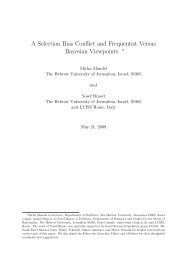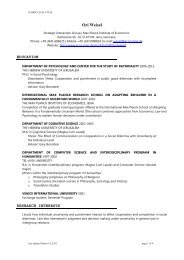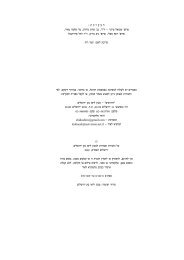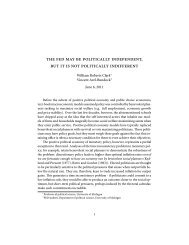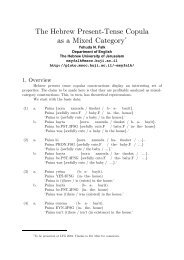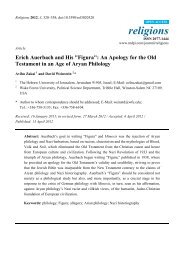Transitive verbs with non-accusative alternation in ... - Pluto Huji Ac Il
Transitive verbs with non-accusative alternation in ... - Pluto Huji Ac Il
Transitive verbs with non-accusative alternation in ... - Pluto Huji Ac Il
You also want an ePaper? Increase the reach of your titles
YUMPU automatically turns print PDFs into web optimized ePapers that Google loves.
96<br />
Rivka Halevy<br />
expressed by each of the alternat<strong>in</strong>g construals, the correspond<strong>in</strong>g situation<br />
types, and the different viewpo<strong>in</strong>ts on the transitive event, <strong>in</strong>clud<strong>in</strong>g the<br />
factuality dimension.<br />
‘et Construction be- Construction<br />
1. Categoriality of A A agentive A may be <strong>non</strong>-agentive,<br />
e.g. <strong>in</strong> metaphorical read<strong>in</strong>g<br />
2. Individuation of O<br />
3. Involvement of O<br />
<strong>in</strong> the event<br />
4. Contact between A<br />
and O<br />
Unmarked<br />
O may refer to a generic<br />
or <strong>non</strong>-discrete entity<br />
O occasional and passive<br />
patient<br />
Unilateral relationship<br />
between A and O<br />
Unmarked<br />
5. Affectedness of O Unmarked (‘holistic<br />
effect’)<br />
O is part of the verbal<br />
predication, tends to<br />
<strong>in</strong>dicate an ‘effected<br />
object’<br />
6. Character of V and<br />
the global predication<br />
a. Situation<br />
type:<br />
b. Aktionsart<br />
and<br />
Viewpo<strong>in</strong>t<br />
May <strong>in</strong>dicate typical,<br />
accidental or generic<br />
situation<br />
Prototypically telic,<br />
dynamic event; <strong>Ac</strong>tion<br />
viewed externally, <strong>with</strong><br />
no reference to its <strong>in</strong>ternal<br />
temporal structure (i.e.<br />
perfectively)<br />
‘Holistic view’<br />
Marked<br />
O is highly <strong>in</strong>dividuated<br />
O <strong>non</strong>-arbitrary participant<br />
actively <strong>in</strong>volved <strong>in</strong> the<br />
event<br />
Bilateral relationship<br />
between A and O<br />
Marked: <strong>in</strong>tentional and<br />
<strong>in</strong>tensive contact<br />
Marked (‘partitive effect’)<br />
O is an <strong>in</strong>dependent<br />
argument, exist<strong>in</strong>g from the<br />
beg<strong>in</strong>n<strong>in</strong>g, i.e. an ‘affected<br />
object’<br />
Indicates <strong>in</strong>dividual and<br />
specific situation, <strong>non</strong>accidental<br />
Atelic, progressive process<br />
<strong>Ac</strong>tion viewed<br />
imperfectively<br />
‘Partitive-local view’



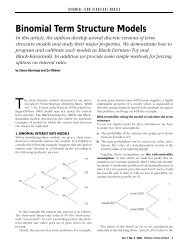
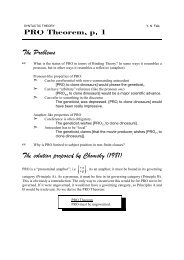
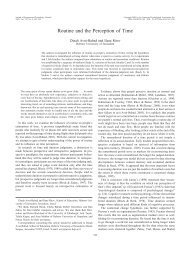
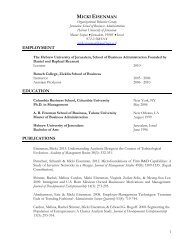
![CV [PDF] - Pluto Huji Ac Il](https://img.yumpu.com/18174585/1/190x245/cv-pdf-pluto-huji-ac-il.jpg?quality=85)
